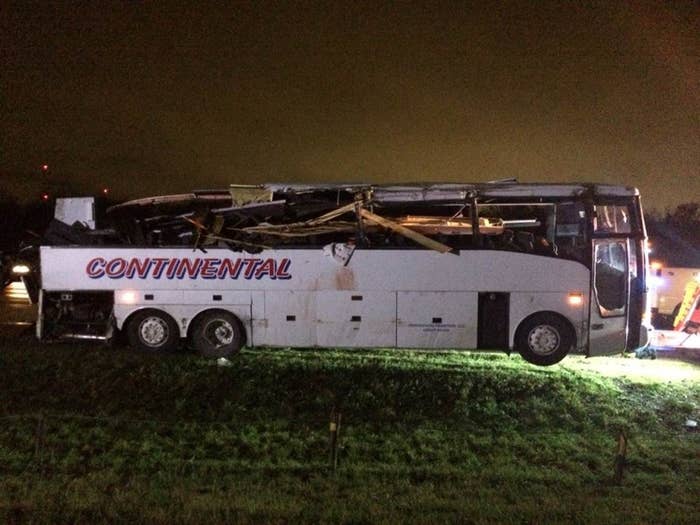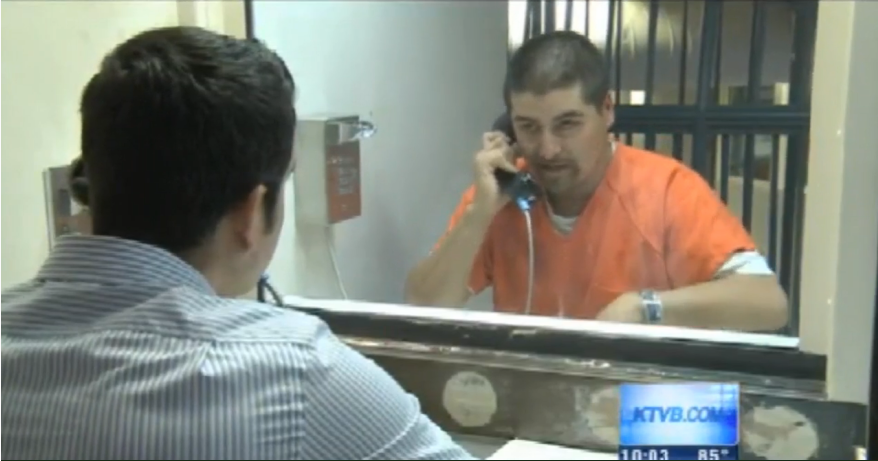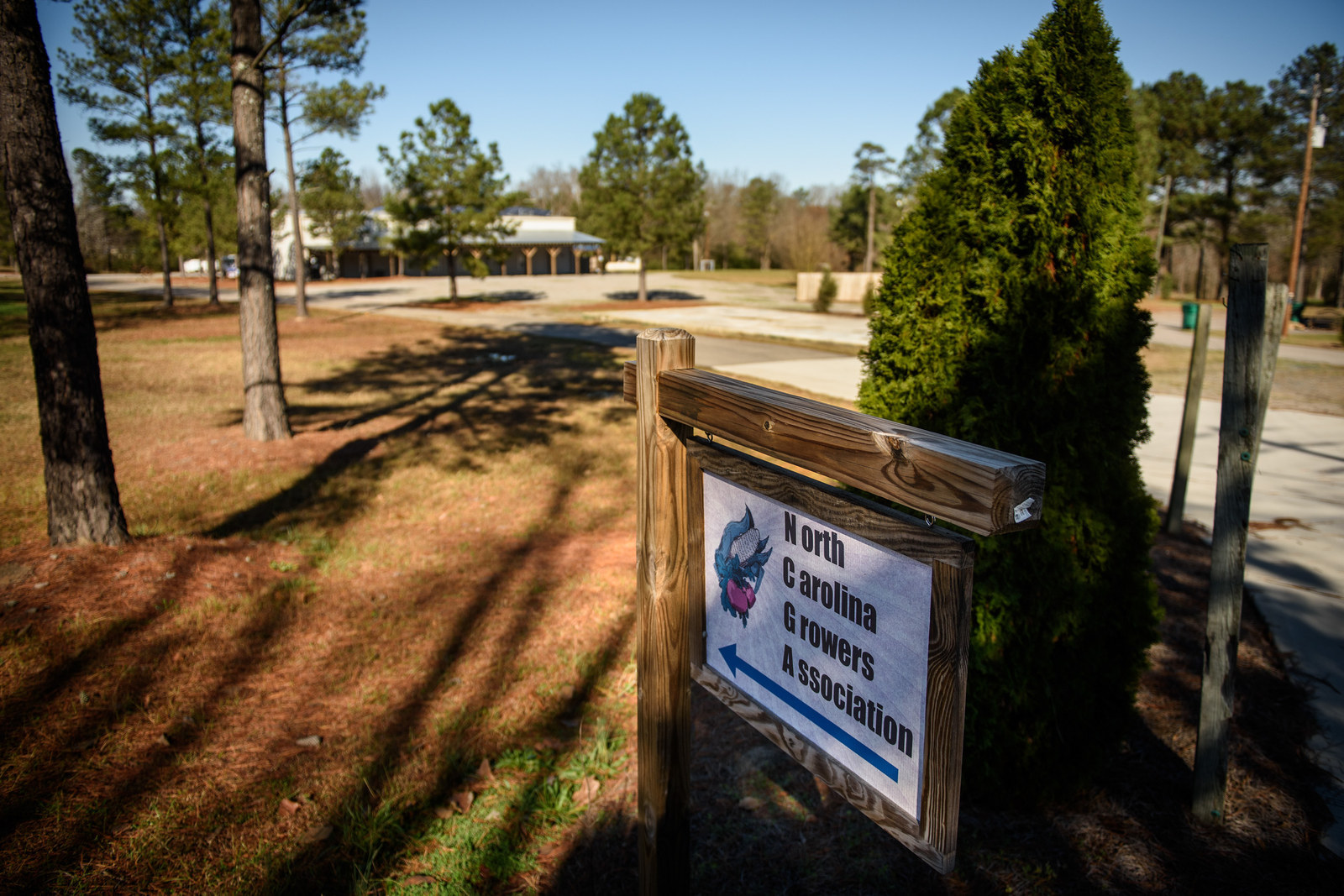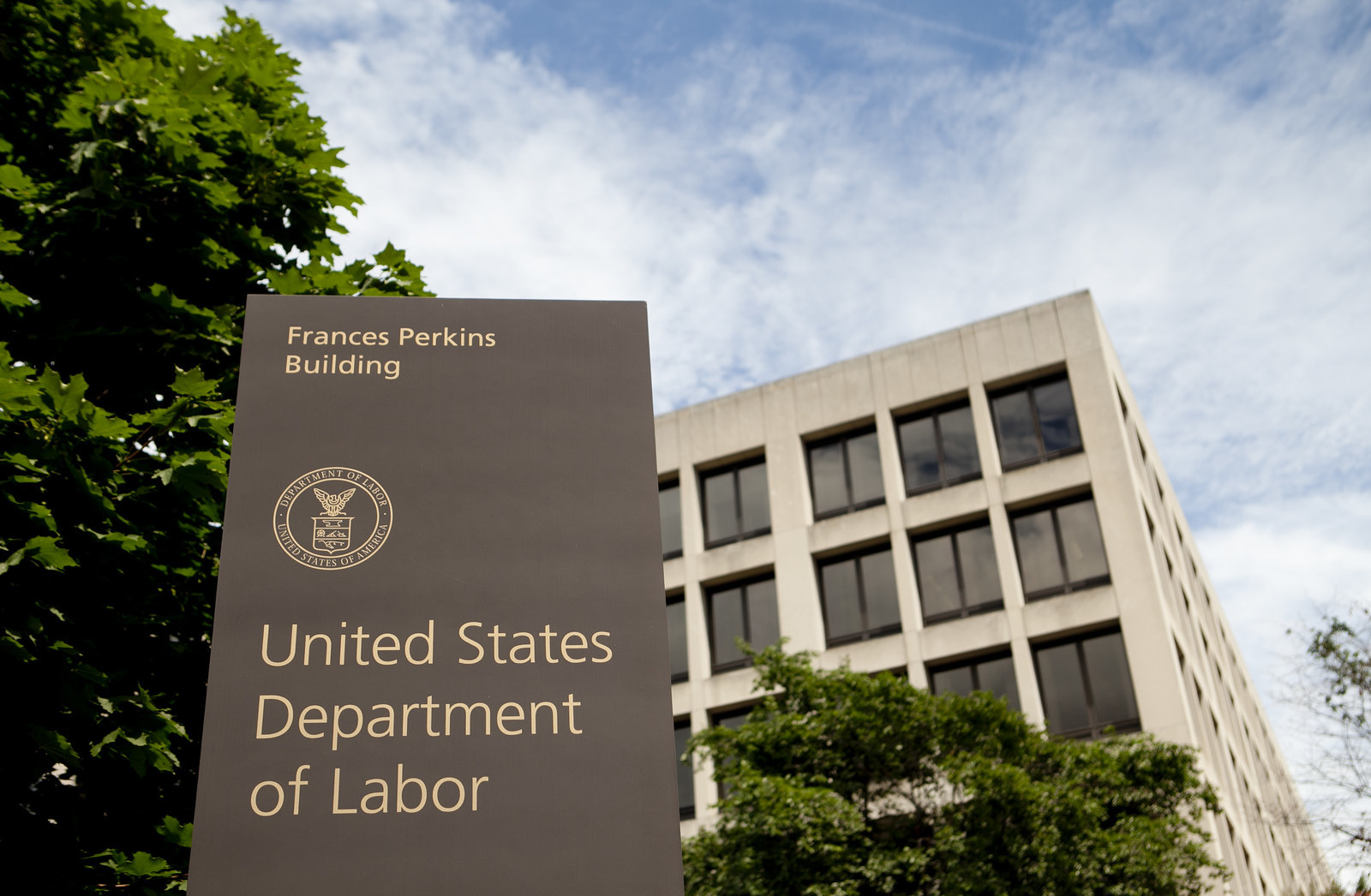Well past midnight last November 6, a bus thundered down Interstate 40 in pelting rain. Almost all the workers onboard were sound asleep. After more than six months of hard labor picking fruit and vegetables in Michigan, they were finally headed home to their families in Mexico.
Just north of Little Rock, the bus bounced off a concrete barrier and into a bridge, shearing off half the roof. Three workers were hurled from the vehicle, their bodies scattered across the darkened roadway. Fortino Cruz Alvarez, 25 years old, was found under the overpass, his neck partially severed, his face crushed, and $805.08 in his pockets. Three others lay dead inside the totaled hulk. When rescue workers arrived, Rosa Maria Villa Herrera, 47, was still in her seat, dressed in a black and pink jacket but missing a large chunk of her skull.
The six dead and seven injured were among a growing number of foreign guest workers brought into the United States every year on special H-2 visas to perform low-wage, unskilled labor. The federal program, which can provide substantial financial benefits to companies, obliges participating employers to follow a host of special regulations designed to protect the rights of U.S. and foreign workers. For example, employers must guarantee a certain wage to H-2 workers, and must in some cases provide housing.
Last year, more than 175,000 people came to America on H-2 visas, and Vasquez Citrus & Hauling — which owned the bus and employed the 18 workers riding in it — is one of many companies that have come to rely heavily on the program’s cheap, short-term foreign labor. Other H-2 employers include the amusement park operator Six Flags, the hotel chain Hilton Worldwide Holdings, the luxury ski resort Vail, and the presumptive Republican presidential nominee Donald Trump.
As required by law, Vasquez Citrus & Hauling was returning the workers to the border at the end of their work season. But the company had been cutting corners, with more than two dozen federal citations for shoddy vehicle maintenance and unsafe driving since 2014. On the day of the crash, records show, the driver of the bus didn’t have a commercial license. What’s more, attorneys for grieving families say, the company was carrying less than a quarter of the insurance coverage required by law.

The crash made national news, prompted federal and state investigations, and led workers’ advocates to demand that the Department of Labor — which oversees the H-2 program — ban Vasquez Citrus from bringing in more guest workers. But the regulator did not. Instead, within three months of the deadly crash, it authorized the company to bring in nearly 300 more guest workers. As all guest worker employers must, Vasquez Citrus pledged to “provide transportation in compliance with all applicable Federal, State or local laws and regulations.”
It had made the exact same pledge the year before.
The Department of Labor is charged with protecting guest workers, and it has the power to exclude abusive, exploitative, or neglectful employers from the H-2 program. Previous stories by BuzzFeed News have found that the increasingly popular program is rife with abuse and that many H-2 employers illegally deny jobs to American workers.
A new investigation has found that the Department of Labor rarely kicks employers out of the program, leaving thousands of workers each year exposed to mistreatment, injury, and even death. Scores of employers have stolen guest workers’ pay, forced them to live in overcrowded or dangerous housing, held them at gunpoint, or even been sent to prison for immigration fraud, yet have been allowed by the Labor Department to continue receiving hundreds or even thousands of H-2 visas.
Employers are “more likely to get hit by lightning” than to be banned from bringing in foreign workers.
By its own admission, the Labor Department very frequently finds problems with guest workers’ labor conditions. In the 2014 fiscal year, it identified violations in 82% of the H-2 visa cases it investigated. Yet federal records show that the department bans — or to use its term, debars — very few companies, and in at least one year didn’t debar a single one in the entire country. Between 2010 and 2014, agency investigators identified nearly 1,000 companies that had violated H-2 laws, yet in that time period, the Labor Department debarred fewer than 150. Twelve employers were found to have each stolen more than $100,000 from their guest workers in that time period; only one was debarred.
Employers are “more likely to get hit by lightning” than to be debarred, said Greg Schell, a Florida lawyer who has represented guest workers for three decades, including families of those who died in the bus crash. “There are not meaningful deterrents for most bad actors,” he added. “And as a result, the abuses continue.”
Repeated government audits have found that the Labor Department suffers from an “inability to consider debarment” for the most serious violators. Records and interviews show that the agency has blocked its own staffers from even trying to find out whether companies are breaking the law, and that sometimes it ignores its own investigators when they suggest that abusive employers be debarred.
The few companies that do get debarred often seem to view it as little more than a minor nuisance. Agency rules make it easy for debarred companies to simply reinvent themselves, filling out new visa requests under a different name or address, and quickly winning agency approval to bring in more workers.
In a written statement to BuzzFeed News, the Labor Department said it has made “a serious and sustained effort” to protect both guest workers and U.S. workers but added that many of those efforts have “been under constant attack from powerful industry groups seeking to undermine these protections.”
The department pointed out that for many years, H-2 program rules required officials to prove not just exploitation or abuse but “a pattern and practice” of such mistreatment before a company could be debarred. “Debarments were, accordingly, infrequent,” the agency said.
Officials stressed that debarment is not their only enforcement tool and that hitting rogue employers with fines or requiring them to pay back wages “may in some cases also prove successful at assuring future compliance.”
For some lawmakers, that is not enough. Employers who abuse or exploit workers “should face real consequences,” said Sen. Jeff Merkley, a Democrat from Oregon. “That means first time-offenders should be banned until all issues are remedied, and repeat offenders should be banned permanently.”
Working At Gunpoint
In January 2013, six H-2 workers from Mexico complained to the Labor Department that they had endured hellish conditions at the hands of their employer, Pure Forest, a small forestry company from Idaho operating in Northern California. The workers said they had been forced to drink untreated water straight from a stream and to eat rancid food, and had not been paid what they were owed. They said they were threatened at gunpoint when they did not work hard enough.
Less than a month after workers reported being threatened at gunpoint, the Department of Labor approved the company for 25 more H-2 visas.
The federal government launched an investigation. Yet less than a month after the workers made their complaint, as special agents from the Labor Department’s Office of Inspector General were examining the company, the agency approved Pure Forest for 25 more H-2 visas.
Meanwhile investigators continued to gather evidence that suggested abuse. In March 2013, they walked through a campsite in mountainous Butte County. They observed for themselves the squalid conditions Pure Forest allegedly obliged its guest workers to live in. One special agent discovered shell casings scattered on the ground, lending credence to workers’ claims that their foreman fired rounds over their heads to intimidate them. A law enforcement interview with one of the company’s foremen bolstered more of the allegations: Pure Forest, the foreman said, illegally charged the workers for their visas.
But in May 2014, the Labor Department gave Pure Forest permission to bring in 10 more guest workers.
Pure Forest officials declined to comment for this story. In a previous interview with BuzzFeed News, Owen Wadsworth, a manager of the company, called the allegations “completely false.” A lawsuit six of the workers filed in 2014 was settled for an undisclosed amount earlier this year. A foreman for Pure Forest, Pedro Carbajal Jr., was charged with being an "illegal alien in possession of a firearm"; according to an affidavit filed with the charge, Carbajal’s wife told investigators the gun was given to her husband by either Owen Wadsworth or his father, Jeff Wardsworth, the owner of Pure Forest. Carbajal pleaded guilty last year, but told a Northern California TV station that he did not take the gun to work or use it to threaten workers.

Neither Owen nor Jeff Wadsworth were charged. The Inspector General’s office declined to comment on the case or to discuss whether it had shared information with the rest of the Labor Department.
Pure Forest has not applied to bring in workers in the last two years, but it was not debarred. Another forestry company also managed by Owen Wadsworth was approved for 10 visas last month.
The One Thing You Cannot Do
It might seem that there is no allegation of misconduct flagrant enough to cause the government to ban a company. But, in fact, there is one type of wrongdoing so egregious that it frequently snaps the government into action: failing to pay the Labor Department’s visa certification fee, which can be as low as $110.
In recent years, officials have debarred a Georgia vegetable packer, a Kansas grain harvester, and a Florida citrus picking company, all for the same apparently intolerable offense of not paying that fee. The agency has also debarred companies for incorrectly filling out visa applications and for submitting photocopies of legal paperwork rather than originals.
After the Labor Department debarred a Florida company for failing to pay its certification fee, a panel of administrative law judges in 2013 lambasted the agency’s priorities.
“The late payment of a certification fee,” the judges wrote, “falls far below the gravity of many other potential violations that threaten the health, safety, and welfare of domestic and non-immigrant workers” or those that cheat qualified U.S. workers out of jobs, or rob laborers of their wages.
The previous year, for example, investigators had caught an H-2 employer, Popsy Pop LLC of New Jersey, underpaying the guest worker ice cream vendors it sent jingling around the Eastern Seaboard. But faced with evidence that Popsy Pop had stolen tens of thousands of dollars from those vendors, misled them about the working conditions they would face, and illegally discouraged American workers from applying for the jobs, the Labor Department turned into Mister Softee.
If Popsy Pop agreed to pay back $34,000 in back wages plus a $48,000 fine, the agency promised “not to recommend” it for debarment. And even if Popsy Pop didn’t comply, the regulator pledged to ban it for only one year, the shortest debarment period possible. Since forging that agreement, Popsy Pop has been approved for 140 visas, including 20 granted in March.
Ron Bright, Popsy Pop’s owner, said his company did not underpay its workers or discourage Americans from applying for jobs, but made inadvertent mistakes regarding overtime while struggling to comply with the complex rules of the program.
“We sell ice cream,” Bright said. “I’m not an attorney.” He added that the company agreed to settle the case because the cost of fighting in court would be prohibitive. “We have good people. We treat them well, the way I would want to be treated.”
“Scheme And Artifice To Defraud”
Even criminals convicted of serious abuses of the guest worker program haven’t been debarred.
Prosecutors very rarely bring felony charges for violations of H-2 rules. But in late October 2014, Sarah Farrell, who ran an agency that helped employers bring in thousands of guest workers a year, appeared in a North Carolina courtroom after pleading guilty to two counts of visa fraud. During a years’ long investigation, federal prosecutors had uncovered substantial evidence that Farrell, along with her father, had exploited the guest worker system to help bring in hundreds of thousands of workers, often under false pretenses.
In the hearing, U.S. District Court Judge William L. Osteen said he felt it was crucial that Farrell be banned from the H-2 program. “To make sure,” he asked the prosecutor, “has she submitted to and been debarred?”
The assistant U.S. attorney replied: “My understanding, Your Honor, from speaking to the folks at DOL is that she has been disbarred.”

That understanding was wrong. Department of Labor officials later acknowledged to BuzzFeed News that neither Farrell nor her father, Stan Eury, who pleaded guilty to two felonies and is currently serving a 13-month prison sentence, nor any other of their business associates, were debarred.
The Labor Department did debar the company Farrell ran with her father, International Labor Management Corp. — it is the only company that has ever been “permanently debarred” from the H-2 program, according to the agency. But almost immediately, other officials of the shuttered company — who had not been charged with crimes, but had worked for years with Farrell and her father — formed new firms that began seeking and receiving approval to bring in guest workers. One of those companies has gained certification for more than 5,400 visas since its founding in August 2014.
Last year, Jose Alvarado-Salinas, owner of the Austin-based ice cream distributor La Super Michoacana, was caught in an elaborate plot to steal his guest workers’ wages. Although he told regulators he’d pay workers $11.14 an hour, he actually paid them based on each ice pop sold, which came out to be far less. To hide his crime, Alvarado-Salinas cut H-2 workers checks based on the hourly rate, then made them cash those checks and return the money. Prosecutors called that practice “a scheme and artifice to defraud.”
Alvarado-Salinas, reached by phone, declined to discuss the matter.
The company's owner had to serve 90 days' house arrest and repay nearly $140,000 in back wages. Still, the Labor Department went right ahead and approved his petition for 40 more visas.
The investigation, conducted by the Labor Department’s inspector general along with Immigration and Customs Enforcement, led to a guilty plea on a felony charge and 90 days' house arrest for Alvarado-Salinas, who also had to repay nearly $140,000 in back wages. The Labor Department crowed about the case in a report to Congress — but within a few months, the agency went right ahead and approved Alvarado-Salinas’s petition for 40 more visas.
It was hardly an isolated occurrence. The department’s Office of Labor Racketeering and Fraud gave officials information on 178 different companies and employers it said were criminally convicted of breaking labor laws over a 16-month period. Yet the agency, according to a 2010 internal audit, failed to “even consider debarment” from the H-2 program for any of them.
At times, the department moves so slowly that even if it wants to ban a problematic company, it cannot because the two-year statute of limitations has run out, a 2015 review by the Government Accountability Office found. The same report also noted that many debarred companies simply “reinvent” themselves “by starting new companies and submitting applications with slightly different information to continue hiring workers.”
For at least two decades, Jan Altendorf of the North Dakota company Altendorf Transport brought in guest workers from as far away as Ireland, South Africa, and Australia to haul machinery, potatoes, and grain around the Midwest.
Twice, the Labor Department denied her visa applications after discovering that companies with different names but the same ownership had also been getting visas for similar jobs — suggesting that the positions were year-round rather than seasonal, as required by law. One Labor Department judge pondered whether there was a “credibility issue” with Altendorf’s employment practices.
Meanwhile, agency investigators found 68 violations of worker protection laws over the course of four different investigations of Altendorf Transport, and calculated that it owed employees over $23,000 in back wages. And in 2010, a group of workers sued Altendorf in federal court, alleging it had routinely stolen their pay and threatened to fire them to avoid paying for their transportation home. Altendorf denied the charges in that suit, which has been put on hold because she and her company filed for bankruptcy in late 2014.
“It was all part of Altendorf’s strategy” said Hugh Barron, who traveled from his native New Zealand to drive for Altendorf in 2008 and 2009 and claims he’s owed $15,000. By law, workers on H-2 visas can work only for the company that sponsors their visa. So, Barron said, Altendorf “knew that we had to accept what they offered because if we left the company, we’d have to leave the country.”
“The DOL wasn’t something she was worried about,” added Barron. “She had been doing it for years and getting away with it.”
In April 2015, Altendorf Transport was finally debarred for two years. But a review of Labor Department records shows that Altendorf Trucking and Altendorf Farms, two related companies controlled by Altendorf’s brother and other close relatives, have continued to receive approval from the agency to bring in H-2 workers — most recently in early March.
Altendorf declined to comment, but her brother, Marvin, who owns Altendorf Trucking, said he is now in charge. “She just works for me now,” he said.

“We Weren't Allowed To Google Them”
Some former Labor Department officials say that when they tried to protect workers, they found themselves blocked — by the department itself.
Javad Khazaeli, a former manager in the office that certified visa applications, said employees were prohibited from trying to determine whether companies soliciting visas had a prior record of misconduct or worker abuse. “We weren’t allowed to google them,” Khazaeli said. “We were not investigators.” He added: “We had to believe what was on the form and we weren’t allowed to do anything extra beyond the four corners of the document.”
Labor department officials flatly dispute that. “There was no policy against googling,” a spokesman said.
Even when the document itself was suspicious, Khazaeli said, the agency put up barriers to taking action.
A fundamental tenet of the guest worker program is that it should never deny qualified Americans from getting a job. So employers seeking H-2 visas are required by law to place help wanted ads, in order to give any U.S. workers an opportunity to apply before workers from abroad can do so. But in 2012, one of Khazaeli’s staffers noticed that a Louisiana visa agent named Linda White did not include any help wanted ads with her applications. Instead, she sent in receipts that she said she got when she placed the ads. But to the staffers, the receipts looked phony.
Some former Labor Department officials say that when they tried to protect workers, they found themselves blocked — by the department itself.
So Khazaeli said he reached out to the newspapers in question to determine whether the ads had actually been placed. They replied that it would cost approximately $300 to check.
“I was told, ‘No, that’s too expensive,’” recalled Khazaeli. He said he offered to pay the expense out of his own pocket — but that was also rebuffed by Labor Department brass. Eventually, he said, his staff tracked down a local librarian who agreed to order the newspapers for free. “That’s how we got them,” said Khazaeli, who left the agency in 2013 after filing a complaint about his own working conditions. He now works as a lawyer in private practice.
White’s company was eventually debarred; last year she pleaded guilty to one count of falsifying information and she was sentenced to 18 months in federal prison. Employees in Khazaeli’s department were later given an award for the case, but in the beginning, Khazaeli said, it was “obstruction, obstruction, obstruction; no, no, no.”
In 2014, the Labor Department opened a probe of T. Bell Detasseling, an Iowa farm and labor contractor specializing in corn, bean, and melon harvesting. The company had been bringing in H-2 workers from Mexico since the late 1980s, and, with more than 6,800 visas approved between 2005 and 2015, is among the largest users of America’s guest worker program.
Three previous probes of the company had turned up a whopping 1,466 violations of worker protection laws, ranging from wage theft to poor record keeping to failure to ensure that workers left the country when their jobs were done. This time around, investigators dug up a fresh crop of issues, including an apparent attempt to discourage Americans from applying for jobs, which is among the most serious possible violations of the H-2 program’s rules.
In addition, investigators found that the company had taken a guest worker who was recruited to work in corn fields in Michigan and sent him to repair farm buildings owned by T. Bell in Iowa. That’s a clear violation of guest worker rules and, a supervisor noted, “grounds for debarment.”
But T. Bell was not debarred. In fact it was not even penalized. Instead, the company has received approval for at least 473 visas since Jan. 30, 2015, the date investigators submitted their final report, which found a host of violations but recommended no punishment unless the company misbehaved in the future.
Terri Bell, a co-owner of the company, said the fact that the firm was not disciplined shows there were no serious problems. She said T. Bell treats workers well and that people clamor to work there. “I’m getting about 100 calls a day from people in Mexico wanting to come back,” she said.

“Everything Has Been Taken Care Of”
Tom Thornburg, a lead attorney with Farmworker Legal Services in Michigan, wonders if the six Vasquez Citrus workers killed in the deadly bus crash last November might still be alive if the Labor Department had debarred the company.
For years, Thornburg and his colleagues have been amassing a list of what they believe are serious issues with the firm’s treatment of H-2 workers, as well as concerted efforts to discourage Americans from taking jobs.
The Labor Department has probed the Lake Placid, Florida, company numerous times over the past decade, uncovering more than 40 violations of worker protection laws. The regulator currently has four open investigations involving Vasquez Citrus, following allegations by Thornburg and other workers’ advocates that the company illegally confiscated its workers’ passports and stole their wages. One of those employees ultimately received several thousand dollars in back wages, Thornburg said. Labor Department officials declined to discuss details of the investigations because they are ongoing.
Some of the alleged abuses could be grounds for debarment, and worker advocates sent the Labor Department three detailed letters urging stronger disciplinary measures. Each time, they said they got back only perfunctory form letters. Meanwhile, the agency was giving Vasquez permission to bring in hundreds more H-2 workers, 18 of whom were on that long-haul bus.
In the wake of the tragedy, mourning families of the six victims discovered that Vasquez Citrus was carrying only $1 million in insurance when it should have had more than four times as much, according to lawyers representing them. The National Transportation Safety Board opened an investigation of the crash, which is still pending.
The traumatized workers who survived the crash were put up at a nearby Motel 6. Vasquez Citrus paid for a single night. After that, the hotel’s manager said, he himself donated the remaining days of the stay. The Red Cross and the local police contributed food and clothing.
Juan Vasquez, president of the company, which has been approved for more than 1,000 visas since 2013, declined to discuss specifics of the crash. He said he didn’t need to carry the larger amount of insurance coverage because he works in agriculture, not transportation. As for compensating the victims of the crash, he said that “everything has been taken care of.” Schell, the lawyer who represents three of the bereaved families, said his clients had not yet received a dime.
Late last month, the Labor Department debarred for one year Vasquez’s brother, Roberto, who was driving the bus when it crashed. But the decision had nothing to do with his treatment of workers or the deadly scene on the highway. Instead, he had failed to pay visa fees of approximately $600.
Roberto Vasquez said he was unaware he had been debarred until informed by BuzzFeed News. “As far as I know, everything is in order and paid in full,” he said. Reached by phone, his brother, Juan, also professed ignorance of the penalty, and later said it was a “mishap” that had “been taken care of.”
Despite the fact that Vasquez Citrus & Hauling’s name was listed on Roberto Vasquez’s visa application, the Labor Department did not debar the company. Nor did it debar Juan, its owner and president. In fact, the very day after Roberto’s debarment began, the Labor Department approved yet another application submitted by Vasquez Citrus, this time for 116 more workers.
Thornburg says it's all too familiar. For employers, “it’s open season to do whatever you want,” he said. “The abuses continue year after year.” ●


